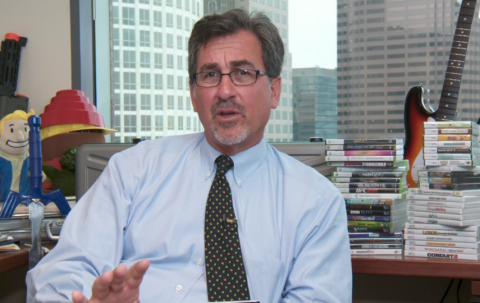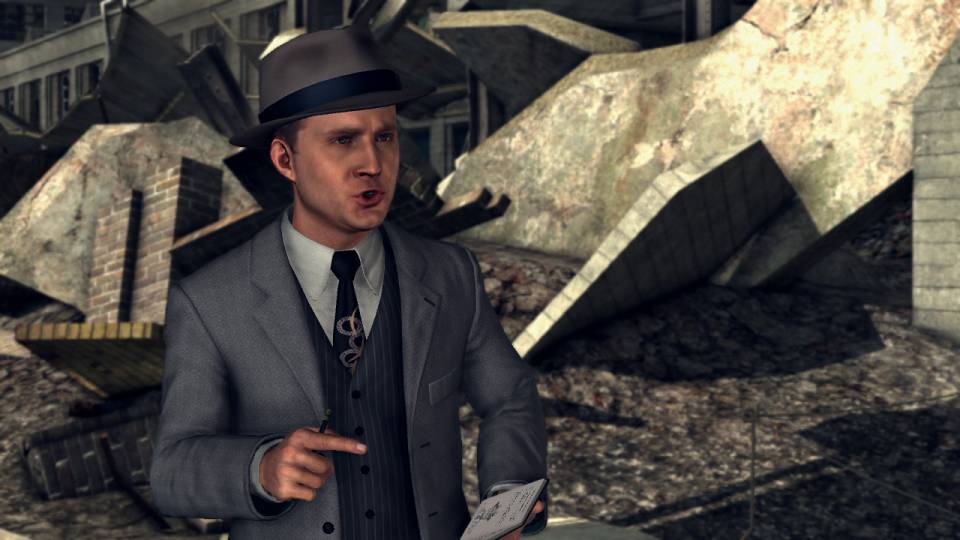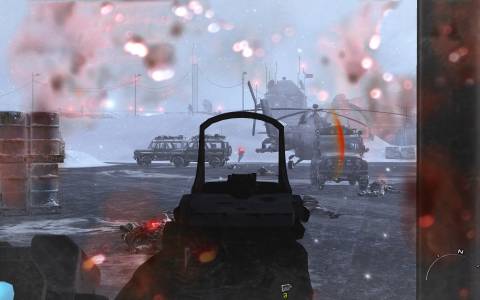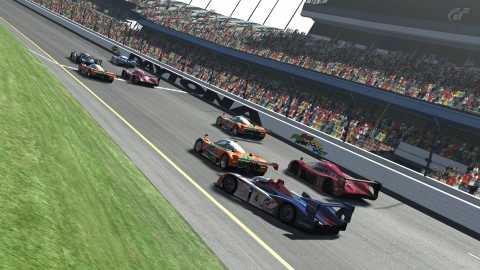
Michael Pachter making headlines? Never!
Of course, now I've just added to the pile...but stay with me for a second.
The Wedbush Securities analyst has never been one to shy away from a bold statement. When a Pach Attack! viewer asked him about the reports of extended crunch development at L.A. Noire's Team Bondi and what it says about the rights of game creators, Pachter had no shortage of opinions on several topics--overtime, unions and more.
I'm not here to offer my own thoughts on Pachter's comments. Instead, I've plucked the statements that generated the most response elsewhere, and tried to prove, disprove or, at least, provide some context to them.
"I've never heard a developer say I don't work overtime and I don't work weekends. I do not think the game development process as having employees that qualify for overtime."
The concept of paid overtime is a contentious one, the argument in favor stemming from the industry's struggles with crunch, where a development team ends up working insane hours--nights, weekends--to finish a project. It's reported Team Bondi operated on crunch hours for more than a year to finish work on L.A. Noire.
Hourly employees can earn overtime pay, while salaried employees are not legally entitled to overtime.
"While compensation is certainly part of the equation, the fact is the problems extend well beyond compensation," said Brian Robbins, chair of the International Game Developers Association board of directors and founder of mobile developer Riptide Games. "At best, extended crunch becomes unproductive for the team, and in the worst cases causes physical and mental harm on the people involved."
The IGDA is a non-profit industry membership organization meant to connect developers with one another and to advocate for issues affecting the industry workforce. It is not a union, a subject we'll touch on a bit later.

"Crunch and overtime in gaming is, as any experienced developer knows, a part of life in the games industry," added Haunted Temple Studios co-founder Jake Kazdal.
Kazdal is currently working on the strategy game Skulls of the Shogun, recently picked up by Microsoft for Xbox Live Arcade. He previously worked on Rez at United Game Artists and the cancelled Steven Spielberg project LMNO at Electronic Arts, among other projects. He's well on the way to the home stretch of Skulls of the Shogun now.
"It is expected, but the idea that people aren't 'entitled' to overtime pay is simply ignorant," argued Kazdal. "People sacrifice time with their children and spouses, miss important events, completely exhaust themselves for the sake of the project, why the hell shouldn't they be compensated?"
Pachter wasn't saying developers shouldn't be compensated at all, but that it shouldn't come through overtime.
"If a game is good, and LA Noire was really good, there will be a profit pool and there will be bonuses. If you're good, and you hit it big, you make a ton of money."
L.A. Noire might have a profit pool. It might not. It actually doesn't matter. According to the latest annual salary survey published in the April issue of Game Developer, 77% of developers polled--sans business and legal--received income on top of their standard salary.

31% earned a bonus after a project or title shipped, 14% received royalties in addition to their salary and 16% engaged in profit sharing. Some developers had a mix of these, including stock options and regular annual bonuses.
All told, the average additional compensation was $12,712.
"I've been in the industry for 15+ years, worked on lots of cool projects, but not once have I ever received any money from a profit pool," said Kazdal. "Rez was a great game, but that doesn't automatically mean we made a ton of cash and that cash bled out as far as the artists and programmers. To suggest that all good games make the developers rich is just ridiculous. That is reserved for the mega-titles, which my eclectic career has not put in my path."
Kazdal does have friends who've benefited from a profit pool--but they worked on Gran Turismo.
Former Infinity Ward co-founders Jason West and Vince Zampella had an ugly split from Activision last year, an impasse that's still to be resolved in a splashy lawsuit. Amongst other things, West and Zampella are suing Activision over more than $100 million in unpaid royalties. It's not chump change.
There are no guarantees with a profit pool, either as one anonymous developer who once participated in one told me.

"Even if there is a profit pool, it's incredibly unlikely you'll see anything, let alone the whole amount," said the developer. "Most likely the threshold to go into the pool is too high to ever pay out. If it does pay out, the less reputable publishers will find ways to bend terms to reduce or cancel the payout. The payout is almost always staggered out over multiple years too, and they'll almost definitely only be tied to your employment, so if you leave before the payout finishes, you won't get the remaining royalties."
That final point--getting no money because you've left before payout finishes--is one of the egregious allegations in the Infinity Ward suit, in which Activision was allegedly locking developers into continuing to work at the studio in order to receive payouts for the previous game's royalties.
"We're talking about a games industry where the average compensation is well above $60,000 and often above $100,000 a year. I just don't think people who make $100,000 a year need a whole lot of protection because they have to work overtime."
Pachter brings up two points. First, the average salary of a game developer. We can pull applicable data from the same Game Developer salary survey, which proves Pachter partially right.
- Programmers: $85,733
- Artists and Animators: $71,354
- Game Designers: $70,223
- Producers: $88,544
- Audio Professionals: $68,088
- QA Testers: $49,009
The overall average? $72,158, definitely above $60,000. "Often" above $100,000? Not necessarily. Based on the survey, earning at least, close to or more than $100,000 is definitely possible in every department except QA, but you need to be at the top position within your field (i.e. technical director vs. programmer) and have more than six years of experience.

Lastly, there's the concept of organizing into unions, in order to collectively force publishers to treat developers more fairly.
It's a polarizing topic that, like all these subjects, really deserves its own story to be fully explored.
That said, the results of the most recent IGDA "Quality of Life" survey presented at the Game Developers Conference last year suggested there is support for unionizing game developers, albeit support that's hardly across the board.
Of 2,506 surveyed, 35% were for unions, 31% sided against unions and 34% either didn't have an opinion or preferred not to say. More than one-third isn't a number to scoff at, but there are significant challenges to actual unionization.
"Ignoring whether or not it makes sense to have a union for game developers, the reality is it would be very difficult to create one," said Robbins. "The vast geographic diversity of game development, makes for a significant challenge to unionizing, even before you start looking at the realities for what unionization would mean for developers, and trying to see if a significant number of developers support the idea."
Pachter later better clarified his position through an editorial on Industry Gamers. He reiterated that working conditions at Team Bondi seemed indefensible (a point he made in the original video, to be fair), but there was little to suggest that these employees deserved overtime or that unions would have a natural way of integrating into the video game industry.
Either way, Pachter's just the latest to weigh in on a controversial topic that's swirled for years. He won't be the last, either.